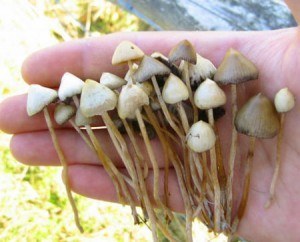Cannabis was illegal at every level in the United States for 75 years before Colorado and Washington State legalized it. When voters in those states made that decision two years ago, they opened the floodgates.


Medical research on psychedelics has been increasing in recent years as their benefits become more apparent. These oft-maligned cousins of marijuana, from LSD to ‘shrooms, hold out hope of treatments for anxiety, Parkinson’s disease, and breast cancer, among other conditions.
This March, for the first time since the 1970s, researchers published a peer-reviewed study on the medical benefits of LSD. The study is just one of a growing number looking at psychedelic treatments.
With little attention, the federal government has recently loosened the reins on psychedelic studies, even though most of these drugs are banned under the Controlled Substances Act.
LSD, psilocybin (magic mushrooms), mescaline, and other psychedelics are listed under schedule 1 of the act. That means they’re presumed to be especially dangerous, especially addictive, and medically useless.
As with marijuana, most of those presumptions are false. LSD, for example, is one of the safest psychoactive drugs in the world, as safe as marijuana. You can’t overdose on it, and you can’t develop an addiction to it. The worst effects are the occasional bad trip or flashback.
What’s more, researchers believe psychedelics hold great medical promise and could be used to treat post-traumatic stress disorder, cluster headaches, alcoholism, and depression in the terminally ill.
Even Bill Wilson, the co-founder of Alcoholics Anonymous, tried LSD – despite the organization’s rigid discouragement of drug use. He reported that it helped his addiction and gave him new insight, and he recommended it as an occasional treatment for alcoholics.
Psychedelics have been with us for a long time, and for much of it they were perfectly legal. It was only the anti-drug crusade of the 1970s that drove them underground.
LSD, or lysergic acid diethylamide, was first synthesized from a grain fungus in 1938. Swiss scientist Albert Hoffman discovered the drug’s psychedelic effects, and a laboratory started making it. In the early 1950s, the CIA conducted covert experiments with LSD, leading to one scientist’s suicide.


He wrote about the experience in a 1957 article for Life Magazine. That inspired Timothy Leary to try the mushrooms, which led him to found a research center for psychedelics at Harvard University.
But Richard Nixon stopped psychedelic research cold in the 1970s, when the nation launched its ill-fated “war on drugs.” Now, LSD and similar substances are making a comeback by way of the medical community.
Most of those who promote psychedelics, including physicians and researchers, stress their ability to expand the consciousness and give users peace and insight they couldn’t otherwise find.
“The beauty of psilocybin is: it’s not medication,” said a participant in an ongoing study at New York University. “You’re not taking it and it solves your problem. You take it and you solve your problem yourself.”














